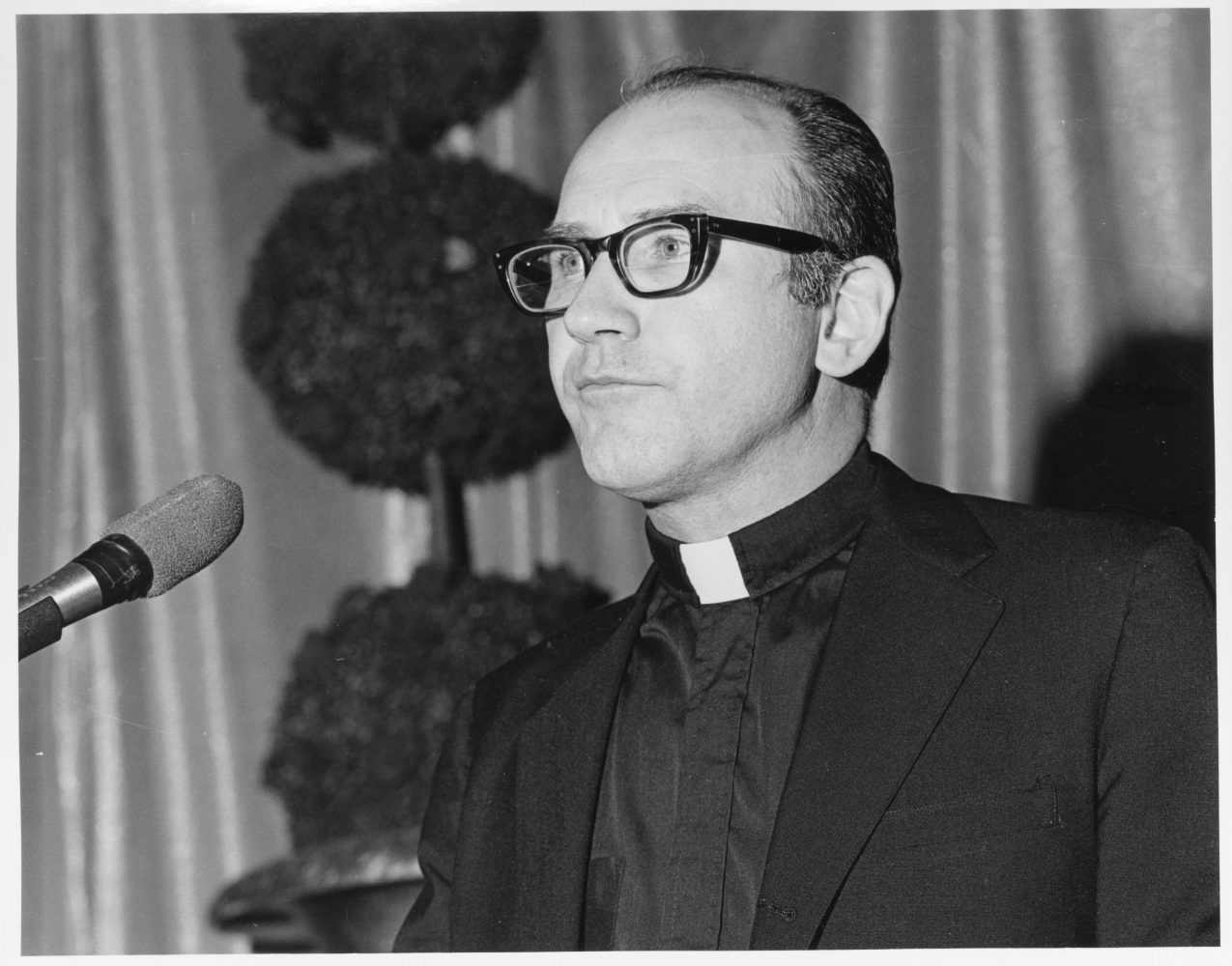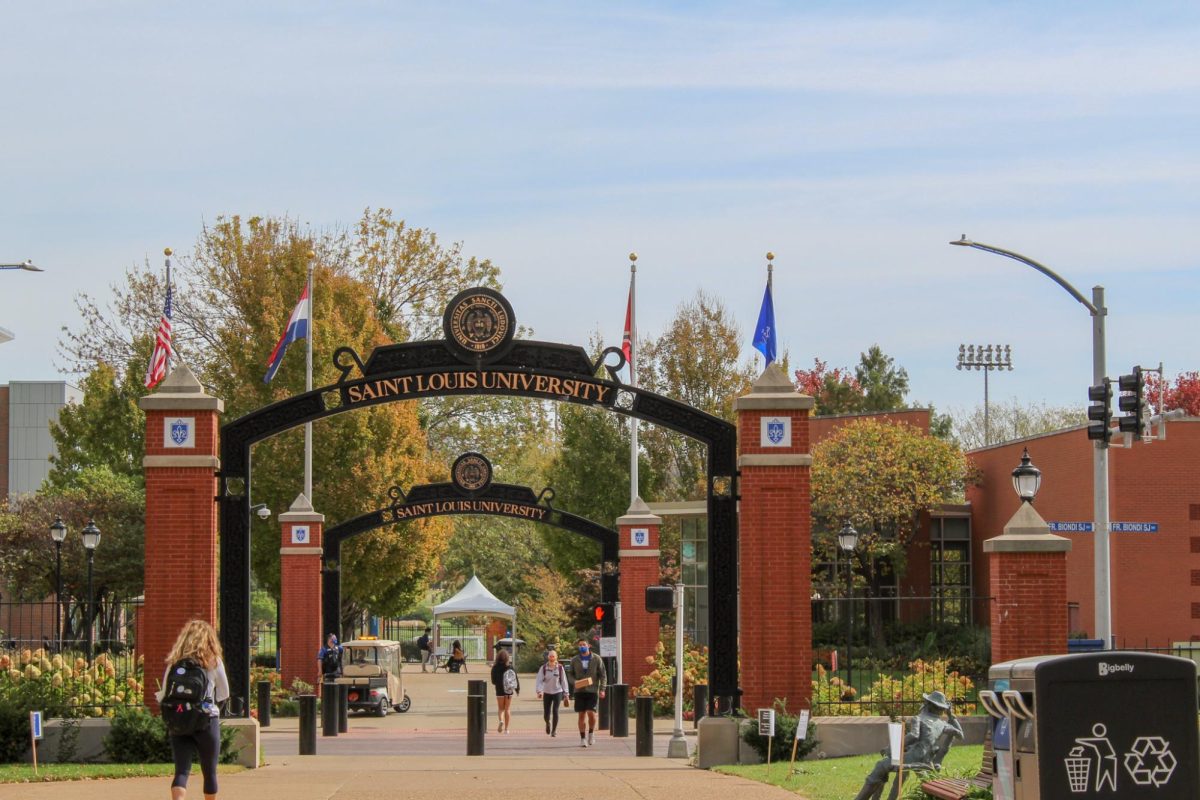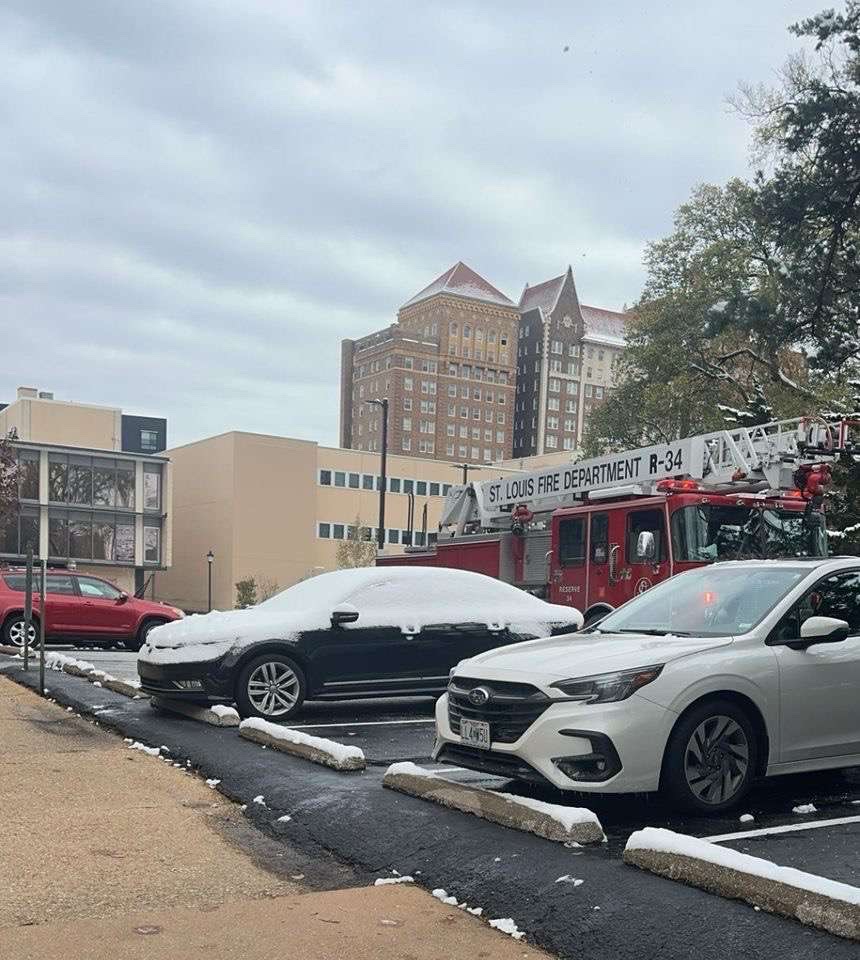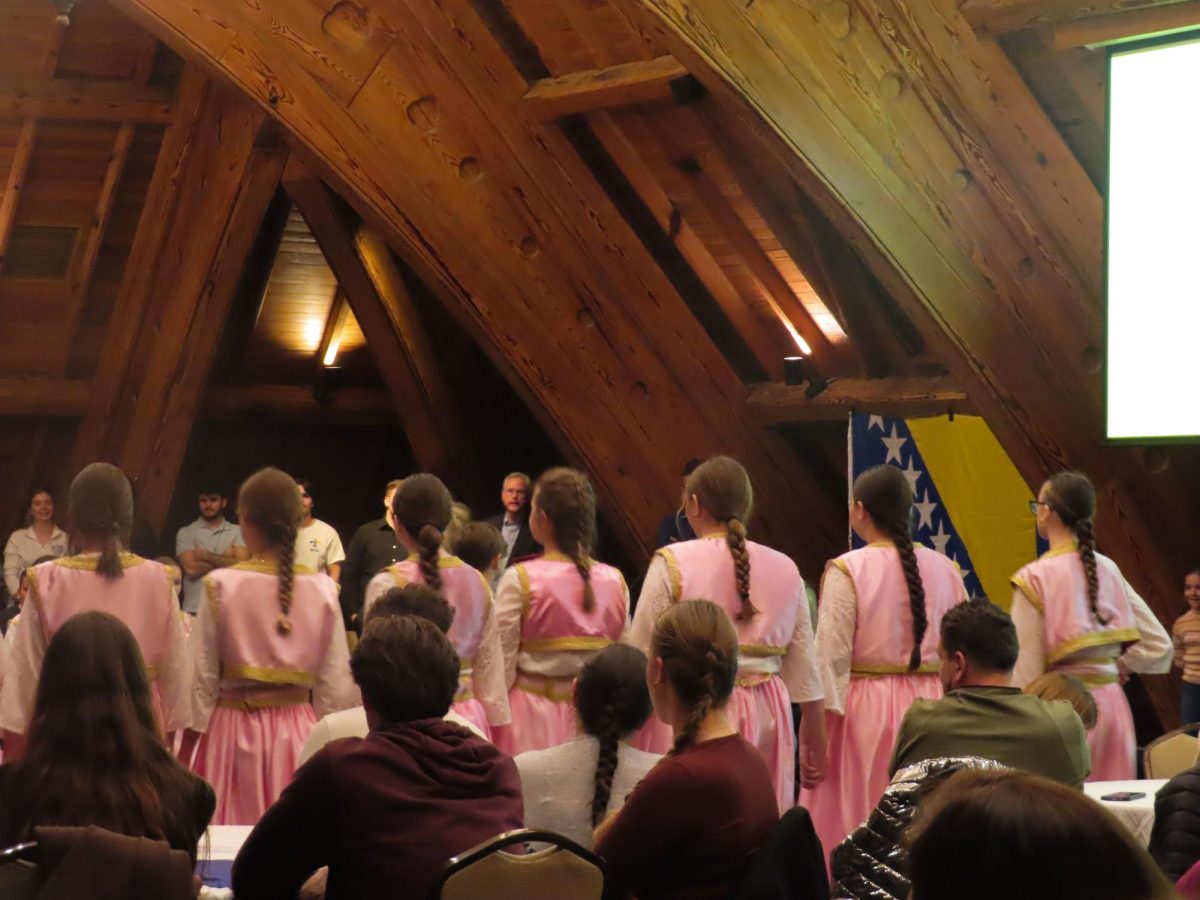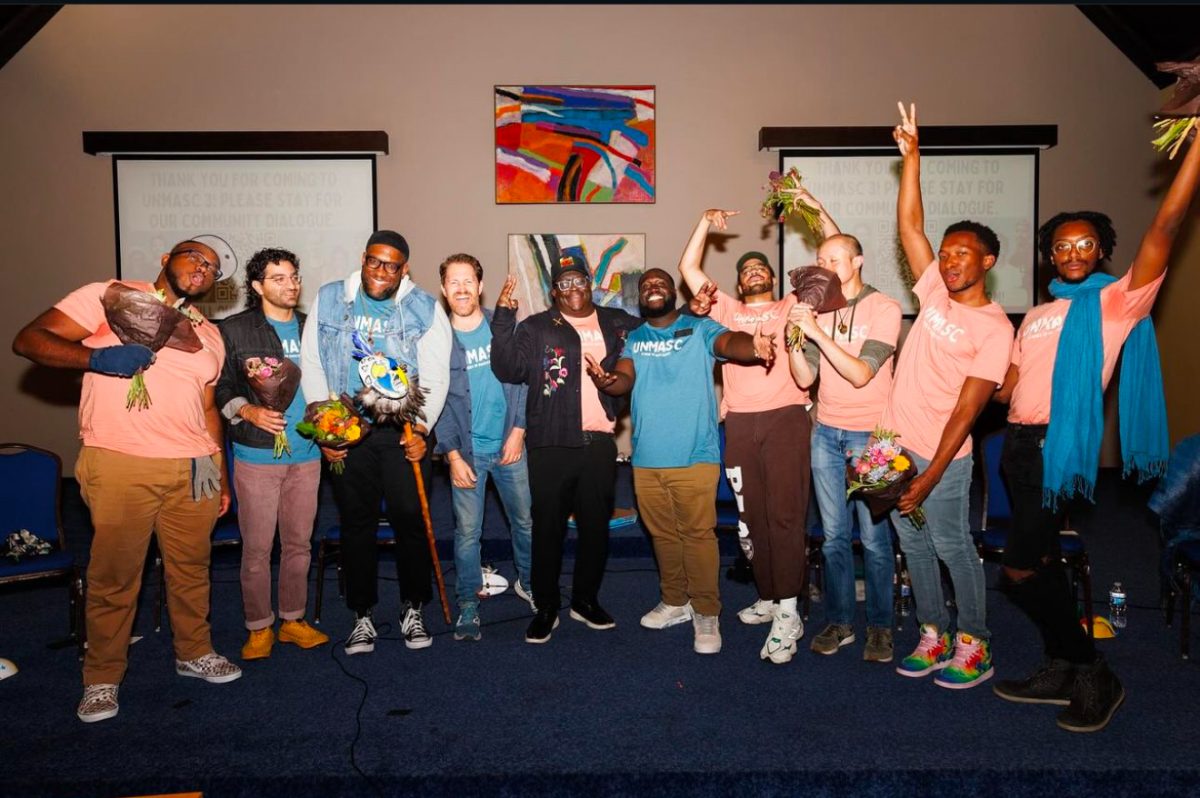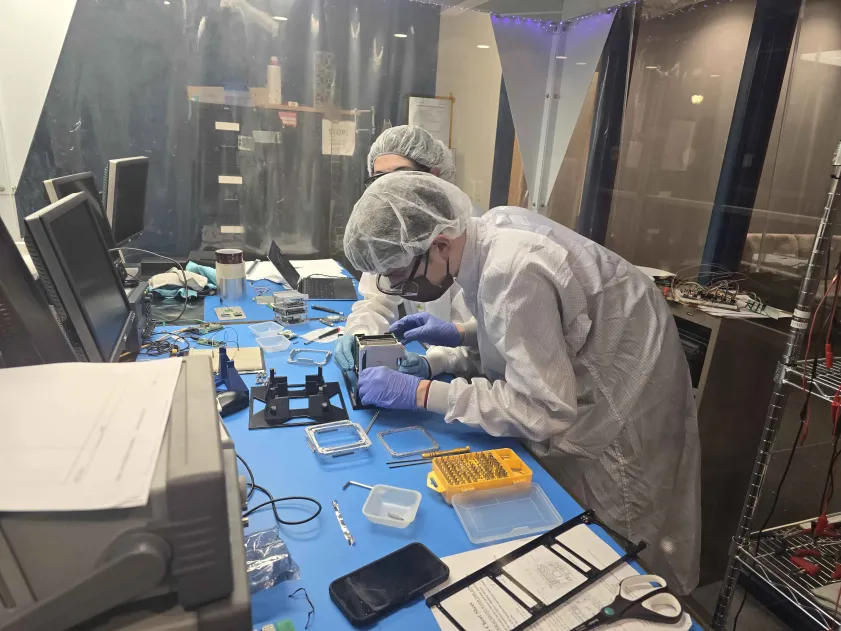Jesuits attribute resolutions, over 20 years in the making, to ‘mediation’
The new year heralded the settlement of two cases against former SLU president Daniel C. O’Connell, S.J., involving alleged sexual abuse against two women. The Missouri Jesuit Province and the University paid $200,000 to a plaintiff known as Jane Doe 929, and the Province paid $81,000 to a plaintiff known as Jane Doe MB.
Filed in 2010, the latter lawsuit carried a breach of contract charge. The Missouri Province (now titled “Southern and Central”) had paid a settlement of $181,000 to the same plaintiff in 2003 in response to allegations that O’Connell sexually assaulted her while she was studying abroad in Rome during the spring and summer of 1983. O’Connell was then a chaplain at Loyola University in Chicago, where Jane Doe MB was a student.
The settlement’s other terms entailed O’Connell’s restriction from “non-public ministerial contact with women” and “public priestly ministry,” as well as from teaching, campus ministry, counseling and retreats, according to St. Louis Circuit Court documents. In June 2003, Frank Reale, S.J., the Jesuit Provincial at the time, wrote a letter to Jane Doe MB stating that he had requested O’Connell’s resignation from Loyola and his transfer back to the Missouri Province.
An attached Settlement and Release Agreement from the Jesuits of the Missouri Province clarifies: “This agreement shall not be construed as an admission of liability or wrongdoing on the part of any party.” However, Reale wrote in his letter that, “Although I find it impossible to determine with certainty the precise details and the exact extent of the abuse, nonetheless I do find credible your allegation of abusive behavior on the part of Fr. O’Connell.”
Jane Doe MB filed suit seven years later, after learning that O’Connell had taught at Georgetown and Fordham universities and had said Mass in Germany in the meantime.
Reading coverage of this case in the New York Times led Jane Doe 929 to file her suit in 2012, alleging that O’Connell had sexually abused her during counseling sessions when she was an undergraduate.
“Both the Jane Doe MB and Jane Doe 929 cases have been resolved through mediation and resolutions for each case are in the process of being implemented,” read a statement from the Central and Southern Jesuit Province. “In resolving the cases through mediation, it was our goal to provide an opportunity for and assistance with healing. We understand that it is important for us to respond compassionately and in a timely way whenever anyone brings forward an allegation against any of our members.”
The organization asserted that it “has policies and educational programs in place to ensure that all of our members are trained in maintaining professional boundaries. The Province is independently certified by Praesidium Religious Services of Arlington, Texas, to be in complete compliance with all aspects of the United States Conference of Catholic Bishops’ Charter for the Protection of Children. All Jesuit institutions continue to work diligently to ensure each is a safe environment.”
In its own statement, SLU’s administration said: “The Jane Doe 929 case involving Saint Louis University and other parties has been resolved. As a Catholic, Jesuit educational institution, SLU is committed to fostering a safe and supportive environment conducive to the academic pursuit and healthy personal development of all persons. It is committed to the preservation of personal dignity and the safety of its community members.”
David Clohessy, national director of the Survivors Network of those Abused by Priests (SNAP), sharply criticized these institutional responses, calling their language “disingenuous and downright immoral,” used to “duck and dodge and deny.” He added, “I long for the day that even one Catholic official has the moral integrity to say, ‘We believe this priest committed these crimes.’ It hardly ever happens.” Church officials, he said, “won’t call [sexual abuse] by its name.”
“These aren’t old cases,” he said. Victims of sexual exploitation, he explained, need time to understand that a priest’s actions were “hurtful,” “severe and ongoing,” that “they’re still out there,” and that their current pains—depression, suicidal thoughts, alcoholism or eating disorders—stem from this exploitation and its inherent “psychological hoops.” Victims must “find the courage and strength to do that.”
Clohessy believed the University misdirected the focus of its response. Instead of perpetuating what Clohessy called a cycle of “say something, minimize it, and move on,” he thought SLU officials should have said that “if anyone in the SLU community—students, staff, former staff, alumni—has any information about O’Connell’s wrongdoing or SLU cover-ups, we beg you to come forward.”
“We would hope that students, staff and alumni would pressure administration to be more honest,” he said. “Be a part of the solution, not a part of the problem.”
Anthony Daly, S.J., who teaches classics, ancient Greek, and Latin, said that he frequently has lunch with O’Connell, however, they would “never talk about anything like this … It’s just not something I’ll ever ask him.”
While he knew nothing about the recent cases, Daly recalled O’Connell’s years as president, remembering how O’Connell would forego meetings with University trustees to lead student Mass, believing that “students were more important than trustees.”
“There is some real child abuse by Roman Catholic clergy,” said Daly. He explained that 30 to 40 years ago, it was seen as a sin for which a priest could receive penance upon confession. “Now they know it’s a considerable mental problem.”
“Bishops want to keep their reputation,” he said. In the past, this has led to the strategic reassignments of sexually abusive priests – such as the cases uncovered by the Boston Globe in 2001. Now, he asserted, bishops have begun “going after people” who are not guilty. “It’s my guess that it’s a hidden motivation,” he said.
Asked about the Jesuits’ protocol regarding sexual abuse cases, Daly said that “a person would be removed from ministry if there’s a credible accusation.”
He also confirmed that each year he takes the Praesidium exam mentioned in the Province’s statement on the cases. “Every year I’ve got to do [the Praesidium exam] so that if someone sues our order, the settlement will be less.”
“That’s a really good mask to wear,” he said in reference to the Province’s and University’s statements. “It doesn’t mean they did anything wrong, it just means they have a really good mask to hide behind.”
When asked to comment, Fr. O’Connell said in a phone conversation that his superiors instructed him not to speak about the cases, which he saw “no reason to violate.”



